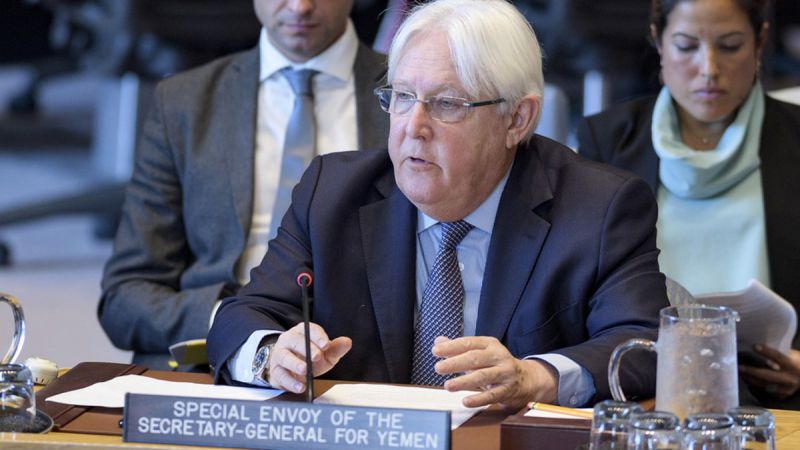
Local Editor
UN Special Envoy for war-weary Yemen, Martin Griffiths, told the Security Council on Thursday, that he believed an end to the fighting “is within close reach”, but cautioning that he had come “yet again to express hope, instead of to report success”.
Despite a looming COVID-19 pandemic and a global economic downturn threatening even more adversity, he maintained that the UN has provided “a feasible roadmap” that puts the onus on “those with arms and power”, to achieve it.
The UN has reported “significant progress” on negotiations, particularly regarding the ceasefire. However, he underscored that peace is part of a broader package of needs that must be agreed to, including humanitarian and economic measures.
He was “extremely encouraged” that both Yemen’s national salvation government and resigned regime of Abd Rabbu Mansour Hadi have positively engaged with UN proposals, calling them “important indications” of their willingness to make the needed compromises for peace.
The civil war escalated in 2013 when a Saudi-led coalition joined the Hadi regime’s effort to drive the Houthis and their supporters, out of the capital, and other areas under their control.
Recent clashes in Hudaydah, Ma’rib, Al Jawf, Al-Bayda and elsewhere show that peace remains elusive, said Griffiths.
Describing the situation in Aden where the UN envoy fears “a perfect storm is brewing”, he spoke about COVID-19, malaria and cholera causing deaths to rise daily – and a health system ill-equipped to diagnose and treat people – exceptionally heavy flooding has damaged infrastructure and homes; and long-deteriorating public services that are now at a breaking point.
The separatist Southern Transitional Council (STC), which was in alliance with the Government, based in Aden, has now taken control of the city, leading to the stalling of the Riyadh Agreement between the two. The STC has recently been taking steps to make local institutions answerable to them.
Thus, the top UN envoy underscored the urgency in implementing the Agreement, to ensure responsive governance and improved service delivery in Aden while also providing for the STC’s inclusion in a resumed UN-led political process to end the conflict.
Griffiths expressed confidence that upcoming negotiations would allow the parties to “swiftly resume the political process” to end the conflict and outline arrangements for a transition period before lasting peace can be established.
“The transitional period would give Yemen an opportunity to escape the misery of conflict”, he said. “It would allow for the focus to shift toward reconstruction, recovery and reconciliation”.
Once a political solution is found, he said a new Yemen could emerge, where essential needs would be met, families would be safe, institutions would serve citizens equitably, women would lead without repression, journalists would report freely, and differences would be resolved through partnership and dialogue.
“I insist that such a future for Yemen is eminently realistic…and this Council has a vital role to play in supporting them, and more importantly the Yemeni people, along the path toward peace”, the UN envoy concluded.
Source: UN News, Edited by Website Team